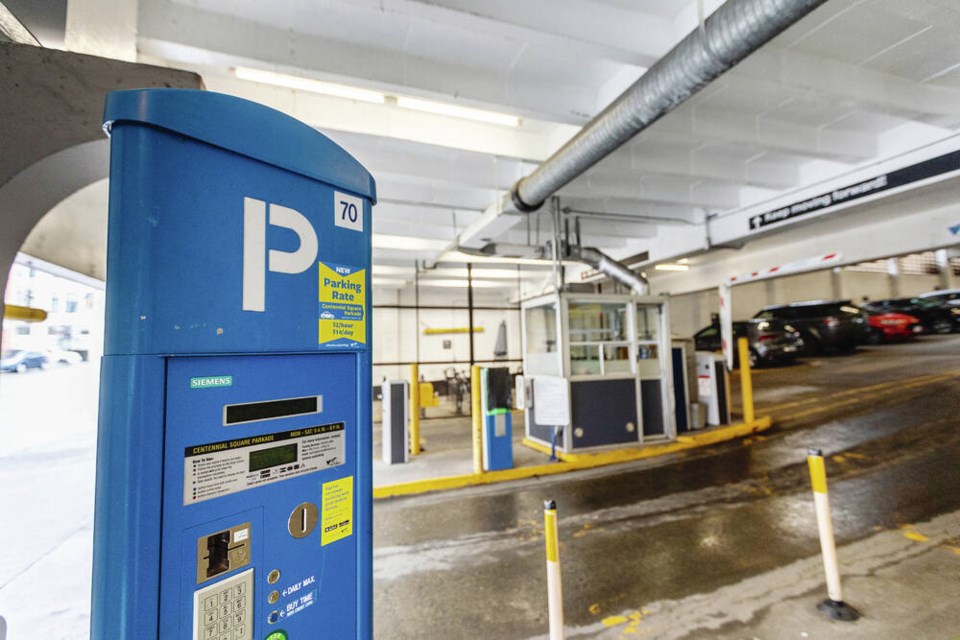Parking rates in Victoria could increase and proposed spending could be trimmed as council looks for ways to limit this year’s property tax increase to no more than the inflation rate.
At a special meeting Friday, Victoria council directed staff to adjust the draft financial plan to increase parking revenue by more than $1.9 million, trim spending by $1.25 million and make room for $195,000 in funding for three projects.
The directive to adjust the draft budget to reflect a 6.9 per cent tax hike for 2023 came after the first draft budget showed property owners in Victoria could face a tax increase of as much as nine per cent.
According to that first document, the city’s nearly $300 million operating budget would require an 8.99 per cent tax increase, which would translate into a $251 increase in property taxes for an average household and a $646 increase for a typical business in the city just to maintain the current level of service.
Staff have come back with a series of measures that tried to find a sweet spot between maintaining spending and limiting tax pain. “It’s a real balancing act,” said Mayor Marianne Alto.
The centrepiece of city staff’s attempt to find that balance was suggesting parking rates could do with an increase.
The higher rates mean on-street parking would increase by 50 cents per hour Monday to Saturday, providing an estimated $450,000 in additional revenue, charging for on-street parking would be extended to 7 p.m. from the existing 6 p.m., which could mean a bump in revenue of about $900,000.
Parkade rates at the city’s five downtown parkades would also increase by 50 cents per hour, providing a bump of $900,000.
More than 60 per cent of the city’s revenue comes from taxation, while user fees account for 19 per cent and parking fees and fines make up about seven per cent.
Alto said parking is always a flashpoint issue.
“It’s also tough because on the one hand we’re talking about climate adaptation and the role of single-occupancy vehicles, and on the other one of the significant aspects of the non-property tax contribution to the city budget is based on vehicle use,” she said.
The recommendations also include cuts to the operating budget totalling just over $1.25 million.
They include a $220,000 reduction in community relations, $100,000 trimmed from the solid waste budget and a reduction of the city’s engagement budget of $82,000.
Council suggestions for cuts include putting on pause the “Dogs in Parks” review that was expected to cost $400,000 this year, and delay work on the Beacon Hill Park accessibility study, which would save $450,000.
Council also asked staff to make room in the budget for three programs — $50,000 for Our Place to extend operating hours and $50,000 for their storage program; as much as $80,000 to extend the Pandora Caretakers program until the end of this year, and $65,000 to augment the Safety Initiative Reimbursement Agreement, which gives grants to businesses to replace broken windows and improve security measures, that would extend that program to the end of 2024.
Coun. Jeremy Caradonna said he thought the balance staff found was reasonable.
“I’m really actually impressed. I thought that there would be scarier cuts happening, and so I’m pleased to see that we don’t need to get into some of our core services,” he said.
“Obviously parking and the cost of parking is a vexed issue, but we have experienced pretty intense inflation and I do think it’s realistic and fair to pass some of that inflation along to the consumer just as we have in so many other facets of life. So I do think that this is fair.”
According to the city, the increase in the operating budget is being driven by inflation, supply-chain issues, increased labour costs and climate impacts.
The public can weigh in on the proposed budget by participating in a public meeting Feb. 23 at city hall, completing an online survey at engage.victoria.ca by March 5 or emailing [email protected] by that same date.
>>> To comment on this article, write a letter to the editor: [email protected]



